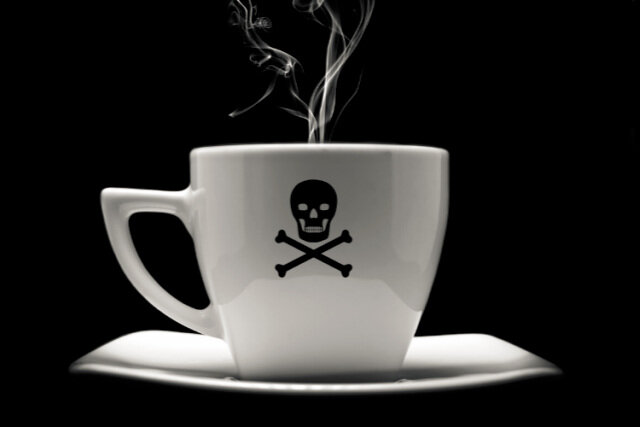Microplastic Pollution In Tea
There could be billions of microplastics and nanplastics particles in every cup of tea you drink.
Learn more below and please join us in urging tea companies to stop using plastic in their tea bags.
IS THERE PLASTIC IN YOUR TEA?
Why plastic and boiling water are a bad combination
More and more companies have begun to package their tea in tea bags made from plastic — either nylon or polyethylene terephthalate (PET).
In addition to these nylon and PET plastic tea bags, the majority of paper tea bags also contain thermoplastic fibers used to seal the bag’s seams. And even tea bags made of wood (paper) fibers may contain a troubling chemical called epichlorohydrin that’s added to prevent the bag from breaking.
In September 2019, researchers at McGill University found that a single one of these tea bags releases more than 11 billion microplastic and 3 billion nanoplastic particles when steeped in boiling water.
A December 2024 study by the Autonomous University of Barcelona (UAB) found that tea bags release between 8 million and 1.2 billion microplastic and nanoplastic particles per millimeter of boiling water they're dunked in and that these particles are readily absorbed by cells in human’s intestines.
Frequent tea drinkers could be repeatedly dosing themselves with billions of plastic particles, some small enough to potentially infiltrate human cells.
Microplastic particles have now been found in human livers, brains, hearts, lungs, blood, and placentas.
The potential human health impacts of microplastic pollution are a cause of concern to many medical professionals and an area of increasingly urgent scientific study.
In addition to requesting that tea companies transition to plastic-free packaging, tea lovers should skip single-use tea bags in favor of loose leaf teas brewed in a glass, metal or ceramic strainer.
Keep Plastic Out Of Your Tea
Take these simple steps you can take to avoid microplastics in your teacup:
Stop buying tea packaged in single-use tea bags.
Opt for loose leaf tea that you can either order in a tin or buy in bulk at your local grocery store, coop or natural foods market. In addition to providing a plastic-free tea option, you get bonus points for minimal packaging waste.
Brew your loose leaf tea in a ceramic, glass or stainless steel infuser or tea ball - these are cheap and easy to find online if you can’t pick one up at a home goods or kitchen store locally.
Please note that if you cannot switch to drinking loose leaf tea brewed in a plastic-free infuser, the bagged teas sold by Yogi Tea, Numi Tea, and Stash Teas offer a safer alternative - please see below for their responses to our inquiries about the composition of their tea bags.
From Numi Tea: “We use biodegradable, unbleached Manila hemp fiber—not plastic like the tea bags studied in the microplastics report. Our tea bags are Non-GMO verified, meet the highest standards for safety in the EU (this goes way beyond the US’s FDA standards) and will degrade over time in a normal compost heap. And we don’t stop there: we also use an oxygen process to whiten our tea bags, so there is no bleach present in the tea or the bags.”
From Stash Teas: “The filter paper used for Stash Tea bags is made from 100% cellulose fibers (wood). Test results conclude that chlorine dioxide is not present in our tea bag filter paper. The filter paper is not coated with the compound epichlorohydrin, and does not contain any free epichlorohydrin. Stash tea bag filter paper is machine folded and pressed, therefore no glue is needed or used. Our teabags are completely compostable.”
From Yogi Tea: “The bag itself is made of abaca (Musa textilis) plant fibres, a species of banana native to South East Asia, which is also used in the production of ships’ ropes. Although sometimes known as ‘Manila hemp’ due to its Philippine origins, it does not actually belong to the same family as hemp (Cannabaceae). The string attached to the teabag is made from certified organic cotton and the label on the other end of the string is made from FSC®-certified paper. Since the teabag does not contain any metal staples or genetically modified material, chlorine or plastic, it is completely biodegradable. The teabags can be disposed of in the compost or organic waste bin and are therefore returned to the cycle of nature.”
Here’s to healthy and delicious tea drinking!
Research Studies
2024 study: https://www.sciencedirect.com/science/article/pii/S0045653524026377
2023 study: https://www.sciencedirect.com/science/article/pii/S0304389423011822
2019 study: https://pubs.acs.org/doi/abs/10.1021/acs.est.9b02540


